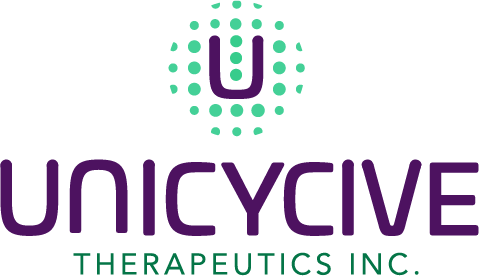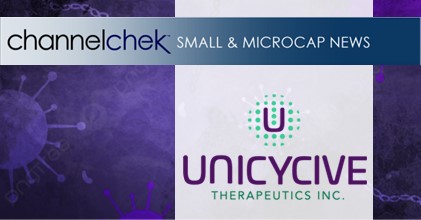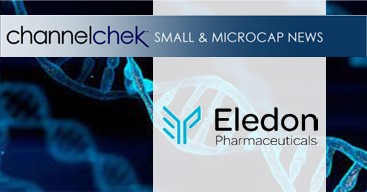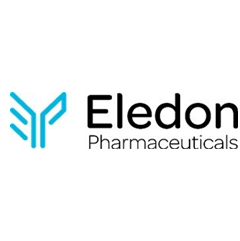
Research News and Market Data on UNCY
October 28, 2024 7:03am EDT Download as PDF
– Late-Breaker Poster Presentation Highlights Favorable Safety & Tolerability of OLC –
– Two Publications Recently Issued Featuring OLC and UNI-494 –
LOS ALTOS, Calif., Oct. 28, 2024 (GLOBE NEWSWIRE) — Unicycive Therapeutics, Inc. (Nasdaq: UNCY), a clinical-stage biotechnology company developing therapies for patients with kidney disease (the “Company” or “Unicycive”), today announced that multiple presentations were delivered at the American Society of Nephrology (ASN) Kidney Week 2024 that highlighted the extensive development progress for both oxylanthanum carbonate (OLC) and UNI-494.
“Kidney Week was extremely productive for us featuring a late-breaking presentation on our OLC pivotal trial, and our numerous data presentations were well received by the medical community,” said Shalabh Gupta, MD, Chief Executive Officer of Unicycive. “We were excited to present our positive pivotal clinical trial data demonstrating that OLC enabled adequate control of serum phosphate in more than 90% of patients with chronic kidney disease (CKD) on dialysis who entered the maintenance phase of the trial. OLC preclinical data was also presented at the conference and recently published. This data supports our recently submitted New Drug Application as we seek U.S. Food and Drug Administration (FDA) approval to bring OLC to the millions of CKD patients with hyperphosphatemia on dialysis.”
Dr. Gupta continued, “Earlier this month, we announced the successful competition of our UNI-494 Phase 1 study and were pleased to present the safety and tolerability data at ASN. We plan to request a meeting with the FDA before the end of the year to review these Phase 1 results and a potential Phase 2 study design.”
“For patients with CKD on dialysis, achieving adequate serum phosphate control is critically important because it can lead to other major complications including cardiovascular disease. I am encouraged by the results from the OLC pivotal trial presented at Kidney Week, and I believe that a product like OLC could have a meaningful impact on the overall care of CKD patients on dialysis,” added Dr. Pablo Pergola, MD, PhD, Research Director of the Clinical Advancement Center, PLLC, and a member of Renal Associates PA, San Antonio, Texas.
PUBLICATIONS
In addition to the presentations at ASN, preclinical studies for both OLC and UNI-494 were recently featured in two publications.
- “Systemic Absorption of Oxylanthanum Carbonate is Minimal in Preclinical Models” was published in the Pharmaceutical Chemistry Journal.
- “Evaluation of UNI-494 in Acute Kidney Injury Treatment Efficacy When Administered After Ischemia-Reperfusion in a Rat Model” was published in EC Pharmacology and Toxicology.
ASN KIDNEY WEEK PRESENTATIONS
| Title: | Effects of Oxylanthanum Carbonate in Patients Receiving Maintenance Hemodialysis with Hyperphosphatemia |
| Lead Author: | Geoffrey A. Block, MD, FASN, Associate Chief Medical Officer & Senior Vice President, Clinical Research & Medical Affairs, U.S. Renal Care |
| Summary: | This late-breaking poster describes the pivotal Phase 2 open-label, single-arm, multicenter, multidose study in adult patients with CKD with hyperphosphatemia receiving maintenance hemodialysis. The aim of the study was to assess the tolerability and safety of OLC at doses that achieve satisfactory serum phosphate control of ≤5.5 mg/dl. Most patients (69%) who achieved the target serum phosphate did so with ≤1500 mg/day and the percent of patients with serum phosphate ≤5.5 mg/dl increased from 59% at Screening to 91% at the end of titration. OLC was safe and well-tolerated with adverse events commonly seen in this patient population and with other phosphate binders. The use of OLC enabled adequate control of serum phosphate in >90% of patients who entered maintenance. |
| Title: | Combination Oxylanthanum Carbonate and Tenapanor Lowers Urinary Phosphate Excretion in Rat |
| Lead Author: | Satya Medicherla, Ph.D., Vice President, Preclinical Pharmacology, Unicycive |
| Summary: | This study evaluated the effects of OLC plus tenapanor on urinary phosphate excretion in rats on a high phosphorus diet. The study showed that the combination of OLC and tenapanor may support a pronounced inhibition of intestinal phosphate absorption by leveraging two distinct mechanisms of action: OLC, an intestinal phosphate binder, and tenapanor, a sodium/hydrogen exchanger (NHE3) blocker that diminishes transcellular phosphate absorption. The results demonstrated that the OLC plus tenapanor combination achieved a much more pronounced reduction in urinary phosphate excretion as compared to OLC alone and 3.3 times greater than tenapanor alone. In addition, the OLC plus tenapanor combination exhibited four- to seven-fold more synergistic effects compared to the sevelamer plus tenapanor combination. The study demonstrated potent effects of the novel lanthanum-based phosphate binder OLC and found that OLC plus tenapanor has synergistic, rather than additive, effects in rats. |
| Title: | UNI-494 Phase I Safety, Tolerability, and Pharmacokinetics |
| Lead Author: | Guru Reddy, PH.D., Vice President of Preclinical R&D, Unicycive |
| Summary: | The poster described the results from the single ascending dose (SAD) cohorts from the Phase 1 study evaluating safety, tolerability, and pharmacokinetics (PK) of UNI-494 capsules administered to healthy volunteers. The study was a single-center, double-blind, placebo-controlled, randomized study that enrolled up to 40 subjects in 5 cohorts of 8 subjects each (6 active/2 placebo per cohort). Safety assessments and pharmacokinetics and systemic exposure of UNI-494 and its metabolites (nicorandil and CHEA) were evaluated. The data demonstrated that a single dose of 10-160 mg of UNI-494 capsules were safe and well-tolerated, and that UNI-494 was rapidly converted to nicorandil and the exposure to nicorandil increased in a dose-proportional manner. Therapeutic levels (AUC >200 hour*ng/mL) of nicorandil were achieved at 160 mg of UNI-494. This rapid conversion of UNI-494 to nicorandil and 1-cyclohexylethylamine indicates a potential for a fast-acting therapy for the prevention of Delayed Graft Function (DGF) and other acute kidney injury (AKI) clinical conditions. |
| Title: | Intravenous UNI-494 Slows the Progression or Halts/Reverses Acute Kidney Injury When Administered After Ischemia/Reperfusion in Rats |
| Lead Author: | Satya Medicherla, Ph.D., Vice President, Preclinical Pharmacology, Unicycive |
| Summary: | The poster presented the results from a study evaluating the in vivo efficacy of intravenous (IV) UNI-494 when administered therapeutically after unilateral renal ischemia-reperfusion (I/R) in a rat model of AKI, which is a well-established model of DGF. The study showed that single IV doses of 10 mg/kg of UNI-494 administered after I/R significantly reduced serum and urinary AKI markers and improved proximal tubular injury scores. Specifically, a single IV dose of 10 mg/kg of UNI-494 improved key kidney functional markers (serum creatinine, blood urea nitrogen, urinary samples collected for albumin-creatinine ratio), the tubular injury marker neutrophil gelatinase-associated lipocalin, and proximal tubular injury scores. These data indicate therapeutic administration of UNI-494 slows down and may even halt or reverse AKI progression. |
The posters and publications can be found on the Unicycive Therapeutics website here.
About Oxylanthanum Carbonate (OLC)
Oxylanthanum carbonate is a next-generation lanthanum-based phosphate binding agent utilizing proprietary nanoparticle technology being developed for the treatment of hyperphosphatemia in patients with chronic kidney disease (CKD). OLC has over forty issued and granted patents globally. Its potential best-in-class profile may have meaningful patient adherence benefits over currently available treatment options as it requires a lower pill burden for patients in terms of number and size of pills per dose that are swallowed instead of chewed. Based on a survey conducted in 2022, Nephrologists stated that the greatest unmet need in the treatment of hyperphosphatemia with phosphate binders is a lower pill burden and better patient compliance.1 The global market opportunity for treating hyperphosphatemia is projected to be in excess of $2.5 billion in 2023, with the United States accounting for more than $1 billion of that total. Despite the availability of several FDA-cleared medications, 75 percent of U.S. dialysis patients fail to achieve the target phosphorus levels recommended by published medical guidelines.
Unicycive is seeking FDA approval of OLC via the 505(b)(2) regulatory pathway. As part of the clinical development program, two clinical studies were conducted in over 100 healthy volunteers. The first study was a dose-ranging Phase I study to determine safety and tolerability. The second study was a randomized, open-label, two-way crossover bioequivalence study to establish pharmacodynamic bioequivalence between OLC and Fosrenol. Based on the results of the bioequivalence study, pharmacodynamic (PD) bioequivalence of OLC to Fosrenol was established. A pivotal clinical trial was also conducted in CKD patients on hemodialysis that achieved the study objective and established favorable tolerability of OLC at clinically effective doses.
Fosrenol® is a registered trademark of Shire International Licensing BV.
1Reason Research, LLC 2022 survey. Results here.
About Hyperphosphatemia
Hyperphosphatemia is a serious medical condition that occurs in nearly all patients with End Stage Renal Disease (ESRD). If left untreated, hyperphosphatemia leads to secondary hyperparathyroidism (SHPT), which then results in renal osteodystrophy (a condition similar to osteoporosis and associated with significant bone disease, fractures and bone pain); cardiovascular disease with associated hardening of arteries and atherosclerosis (due to deposition of excess calcium-phosphorus complexes in soft tissue). Importantly, hyperphosphatemia is independently associated with increased mortality for patients with chronic kidney disease on dialysis. Based on available clinical data to date, over 80% of patients show signs of cardiovascular calcification by the time they become dependent on dialysis.
Dialysis patients are already at an increased risk for cardiovascular disease (because of underlying diseases such as diabetes and hypertension), and hyperphosphatemia further exacerbates this. Treatment of hyperphosphatemia is aimed at lowering serum phosphate levels via two means: (1) restricting dietary phosphorus intake; and (2) using, on a daily basis, and with each meal, oral phosphate binding drugs that facilitate fecal elimination of dietary phosphate rather than its absorption from the gastrointestinal tract into the bloodstream.
About UNI-494
UNI-494 is a novel nicotinamide ester derivative and a selective ATP-sensitive mitochondrial potassium channel activator. Mitochondrial dysfunction plays a critical role in the progression of acute kidney injury and chronic kidney disease. UNI-494 has a novel mechanism of action that restores mitochondrial function and may be beneficial for the treatment of several diseases including kidney disease. Unicycive has completed enrollment in the UNI-494 Phase 1 dose-ranging safety study in healthy volunteers in the United Kingdom. UNI-494 is protected by issued patent(s) in the U.S. and Europe and a wide range of patent applications worldwide. UNI-494 has been granted orphan drug designation (ODD) by the U.S. Food and Drug Administration (FDA) for the prevention of Delayed Graft Function (DGF) in kidney transplant patients.
About Acute Kidney Injury
Acute kidney injury (AKI) is defined as a sudden loss of kidney function that is determined based on increased serum creatinine levels and decreased urine output and is limited to a duration of 7 days. The primary causes of AKI include sepsis, ischemia, hypoxia, and drug-induced nephrotoxicity. Delayed Graft Function is a type of acute kidney injury that occurs in the first week after kidney transplantation. AKI is estimated to occur in 20-200 per million population in the community, 7-18% of patients in the hospital, and approximately 50% of patients admitted to the intensive care unit. Importantly AKI is associated with morbidity and mortality; an estimated 2 million people die of AKI worldwide every year whereas survivors of AKI are at increased risk of chronic kidney disease and end stage renal disease.
About Unicycive Therapeutics
Unicycive Therapeutics is a biotechnology company developing novel treatments for kidney diseases. Unicycive’s lead drug candidate, oxylanthanum carbonate (OLC), is a novel investigational phosphate binding agent being developed for the treatment of hyperphosphatemia in chronic kidney disease patients on dialysis. UNI-494 is a patent-protected new chemical entity in clinical development for the treatment of conditions related to acute kidney injury. For more information, please visit Unicycive.com and follow us on LinkedIn, X, and YouTube.
Forward-looking statements
Certain statements in this press release are forward-looking within the meaning of the Private Securities Litigation Reform Act of 1995. These statements may be identified using words such as “anticipate,” “believe,” “forecast,” “estimated” and “intend” or other similar terms or expressions that concern Unicycive’s expectations, strategy, plans or intentions. These forward-looking statements are based on Unicycive’s current expectations and actual results could differ materially. There are several factors that could cause actual events to differ materially from those indicated by such forward-looking statements. These factors include, but are not limited to, clinical trials involve a lengthy and expensive process with an uncertain outcome, and results of earlier studies and trials may not be predictive of future trial results; our clinical trials may be suspended or discontinued due to unexpected side effects or other safety risks that could preclude approval of our product candidates; risks related to business interruptions, which could seriously harm our financial condition and increase our costs and expenses; dependence on key personnel; substantial competition; uncertainties of patent protection and litigation; dependence upon third parties; and risks related to failure to obtain FDA clearances or approvals and noncompliance with FDA regulations. Actual results may differ materially from those indicated by such forward-looking statements as a result of various important factors, including: the uncertainties related to market conditions and other factors described more fully in the section entitled ‘Risk Factors’ in Unicycive’s Annual Report on Form 10-K for the year ended December 31, 2023, and other periodic reports filed with the Securities and Exchange Commission. Any forward-looking statements contained in this press release speak only as of the date hereof, and Unicycive specifically disclaims any obligation to update any forward-looking statement, whether as a result of new information, future events or otherwise.
Investor Contact:
ir@unicycive.com
(650) 543-5470
SOURCE: Unicycive Therapeutics, Inc.

Source: Unicycive Therapeutics, Inc.
Released October 28, 2024




